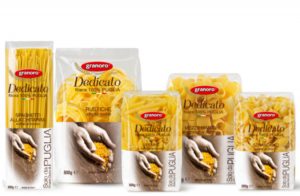Great Italian Food Trade has always supported any initiative aimed at the transparency of information on labels, and the integration of the Italian food supply chain marked by sustainable development. But good intentions should not result in false alarms, such as those raised about Italian pasta by an association that professes similar goals, GranoSalus. Let’s see why.
Alleged supporters of Italian wheat have published a report in which they report on the results of tests conducted on some batches of pasta of the best-known ‘Made in Italy’ brands. An ‘accredited European laboratory’ (1) is said to have measured the presence of some contaminants (Don, mycotoxins, cadmium, lead, glyphosate residues), among other things, giving a favorable overall assessment.
 What the analysis says
What the analysis says
All Italian pasta analyzed was found to be safe and in full compliance, well below the limits defined by European regulations. A reassuring outcome that confirms – once again – how food safety in Italy constitutes an indispensable and effectively respected pre-requisite. Thanks to the resources that are devoted to it by both the practitioners and the public inspection system.
Instead of applauding the goodness of the result, however, GranoSalus has ventured into a series of theorems that harm its own credibility, as well as the reputation of a product that is a symbol of ‘Made in Italy’. Going so far as to claim that the presence of even trace amounts of certain contaminants would be indicative of the use of foreign grains, (2) in spite of certifications to the contrary. (3)
 The only real drama is the fact that a ‘fake news’ with potential even serious impact on a healthy supply chain in our country garners so much credit from self-styled ‘copy-paste’ journalists and uncritical ‘social network’ users.
The only real drama is the fact that a ‘fake news’ with potential even serious impact on a healthy supply chain in our country garners so much credit from self-styled ‘copy-paste’ journalists and uncritical ‘social network’ users.
Dario Dongo
Notes
(1) Laboratory also accredited with regard to individual methods of analysis? Information n.d.
(2) An ontologically false assertion, since every grain wherever harvested- iva including Italian wheat-is subject to most of the potential risks identified (except for glyphosate contamination for organic products only)
(3) As is the case with Coop Italy’s ‘Fior Fiore’ line and Granoro’s ‘100% Dedicated’
Dario Dongo, lawyer and journalist, PhD in international food law, founder of WIISE (FARE - GIFT - Food Times) and Égalité.




